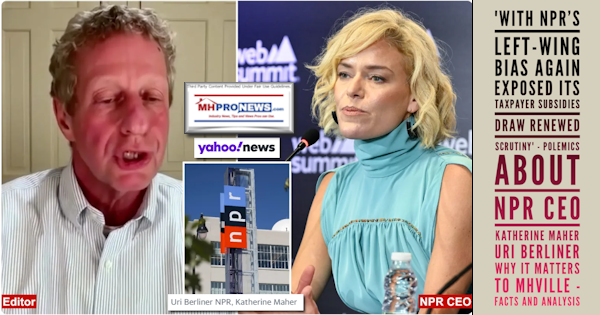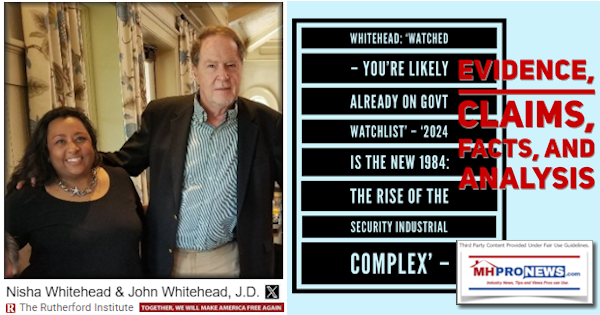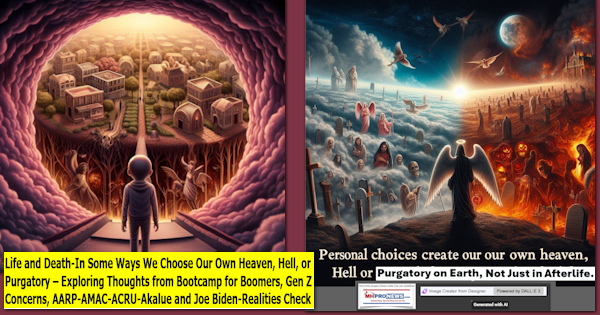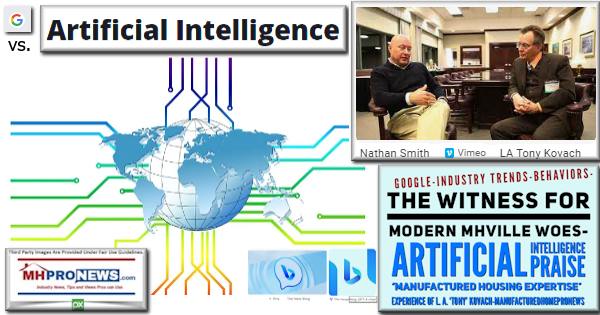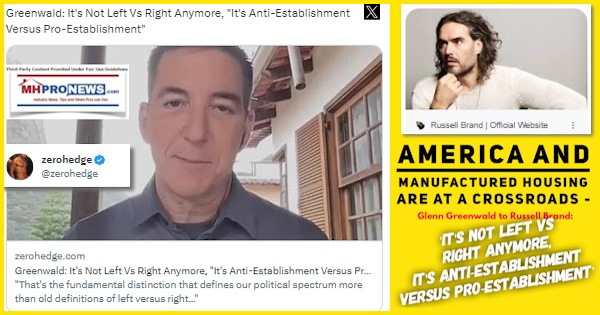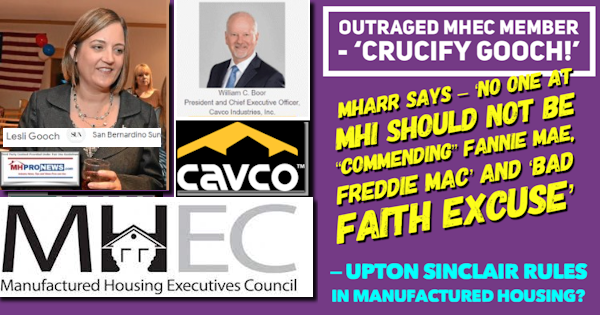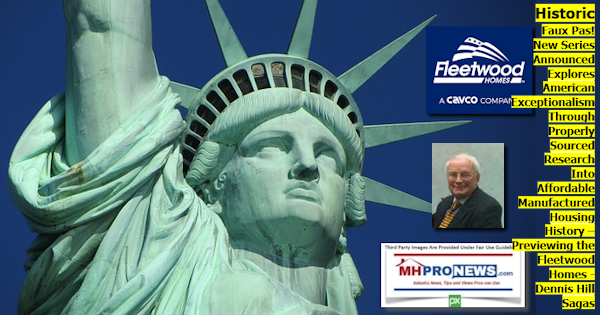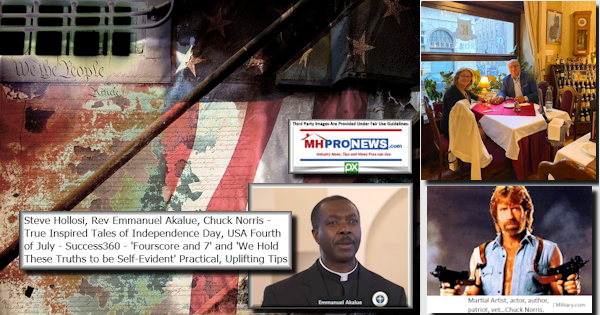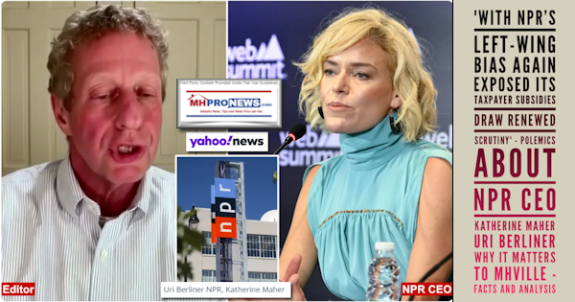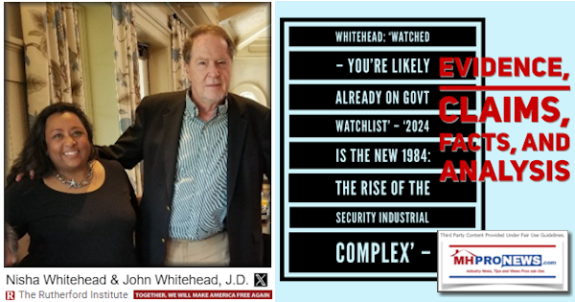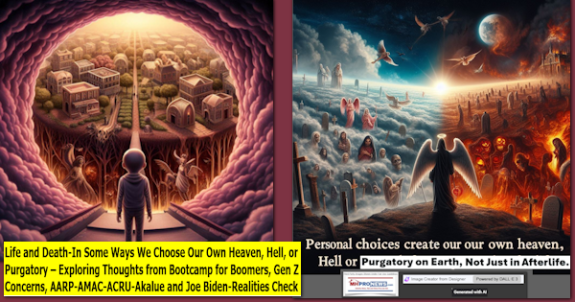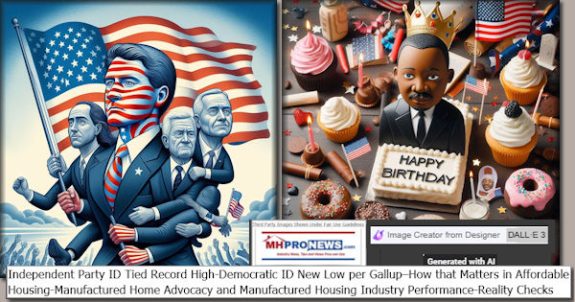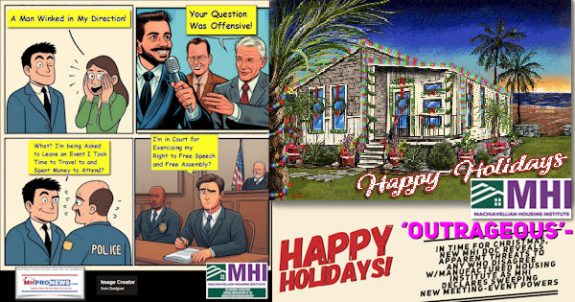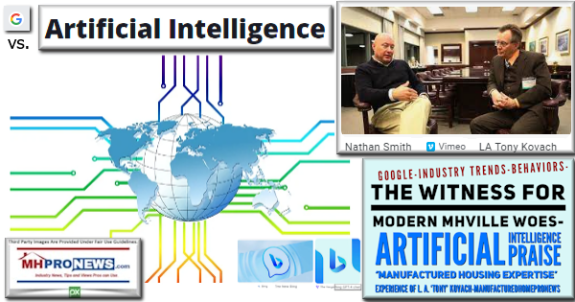In our Friday edition of the Factory Built Housing Industry News at Noon, we featured stories from Canada and the United States, including our daily Market Watch report on manufactured housing stocks. My focus for this post is the part of the News at Noon that recapped the Wall Street Journal’s recent article on the Manufactured Housing Industry’s “search for a rebound.”
Let’s analyze this Wall Street Journal (WSJ) article – pros and cons – for a few moments. Pans and Points from this article include:
- Starting with the headline, this may be read by manufactured housing industry aficionados as a classic example of either sloppy journalism or media bias. The headline reads: “Mobile-Home Makers Try to Stitch Together a Rebound.” The problem here, as any informed MH Industry Professional knows, is there have been no mobile homes built by the factory-built housing industry since June 14, 1976.
- A proper and legal name used by the federal government and others for this style of factory-built housing is “manufactured home” or “manufactured housing.” That has been the case since June 15, 1976, the date that the HUD code as passed by Congress in 1974 went into effect.
The WSJ article intermingled the use of the terms “mobile home”, “manufactured home” and “trailer”, as if each were a proper usage of synonyms. They are not. In our politically correct age, we should all know and be sensitive to proper use of names and terminology. This should be especially true for respected publishers, such as the WSJ.
Let’s use an analogy to make the point.
- Since when does the mainstream media use old, politically incorrect terms in any other form of reporting? When do we see blacks or African Americans referred to with the “N” word by the media? When do we see natives of Mexico referred to as “wetbacks,” as was once sadly the case with such ethnic groups? So, why does the WSJ use (or rather, misuse) the terms “trailer” and “mobile home” in their article?
- To help the WSJ out – and anyone else in the media that is paying attention – a “mobile home” was built on or before June 14, 1976. None have been built in 34 years.
- A “trailer” hauls cargo or cattle; a “travel trailer” is a non-motorized style of recreational vehicle (RV). (A motorized RV is a “motor coach” or “motor home”.) A trailer is also a name for a movie preview.
- Manufactured Housing Industry purists believe that only the ignorant, lazy, misguided or those with an anti-industry agenda misuse terms such as “mobile home” or “trailer” by applying them to modern manufactured homes.
- So, what is to be said when a respected main stream media outlet – such as the WSJ – deliberately blurs the proper terminology regarding this type of quality, affordable factory building, past and present?
- In their article, the WSJ doesn’t explain why Cavco Industries, Inc. CEO, Joe Stegmayer, is counting on a “gradual rise in demand from retiring baby boomers and empty nesters seeking smaller houses,

This photo by Brandon Sullivan of the Wall Street Journal, was included in their story linked above. This was one of the positive highlights from their article – a Cavco Home in AZ – that demonstrates how residential today’s Manufactured Homes can be.as well as first-time home buyers.” One might wonder from their wording:
- Is Stegmayer into wishful thinking?
- Or is his reason because of studies like those done by Cornell University’s Dr. David Funk
- or that of Charles Shinn, a respected consultant once with the National Association of Home Builders (NAHB)?
- These two studies point towards a looming demand that will roughly dovetail once this current wave of stick-built/conventional housing foreclosures has passed.
- These studies also suggest the importance of manufactured and modular housing for addressing these looming booms in the not too distant future.
- “I see this as a temporary blip for Buffett,” says Paul Howard, an independent analyst in Glastonbury, Conn. “There’s value in being the last person standing and being able to survive the downturn.”
- The theory that Buffett/Berkshire-Hathaway/Clayton Homes is allowing the MH Industry’s downward slide may sound interesting or bring more readers, but where is the hard evidence?
- Where are the affidavits or secret documents to prove such a theory, leaked by a disgruntled whistle-blower?
- Indeed, some 19 million Americans live in manufactured homes, as the story reported.
- A positive – and accurate – statement about the quality materials and advantages of manufactured homes should be noted as well.
- To suggest that the Industry as a whole employs 75,000 individuals is unclear, misused or absurd. There are about 50,000 manufactured housing communities, some 3500 retail outlets, plus dozens of factories, not to mention, lenders, insurance companies, installers, suppliers and vendors to the Industry.
- Most such locations and firms require multiple employees, which collectively dwarfs and dispels the figure cited by the WSJ story.
- Where is the investigative work that was once the hallmark of mainstream journalism at work here? As we have mentioned in our pages at www.MHMSM.com before, if you or I violate a federal law, we become subject to fines, penalties, prison, etc.
- What happens when the GSEs, now with the FHFA’s help, ignore federal law mandating financing for modern, appealing, quality manufactured homes? So far, apparently, nothing!
- There have been hundreds of billions of dollars in bail-outs of lenders on conventional housing! In the light of that fact, isn’t it a bit disingenuous to call manufactured home loans “riskier,” as the article says?
- Riskier how and to whom? Where is the clarity of reporting?
- Certainly not riskier in total dollars to U.S. taxpayers! Wikipedia states that over 700 billion in federal dollars have been committed to various taxpayer-guaranteed efforts linked to the subprime mortgage crisis for conventional housing. Any manufactured home loan losses one might point to by comparison are a mere pimple on an elephant’s cheeks.
- Unquestionably, that image can be helped or harmed by proper – or improper – reporting by the mainstream media. The comments posted by some on the WSJ story underscore that point.
- Most certainly, a level playing field in financing would be a massive boost to the MH Industry, creating jobs, and would prepare manufactured housing builders for the next wave of affordable housing demand that Dr. Funk’s and Mr. Shinn’s studies tell us is coming.
- So, where are the investigative reports by the mainstream media that document the lost American jobs, due to failure to implement HERA?
- Where are the reports on studies published by the mainstream media that documents the quality, durability and value of modern manufactured homes?
- Why do so many in the media seem to relish reports on old pre-HUD Code “mobile home parks”?
- Why tag old mobile homes, when there are even older, more outdated, unappealing, energy-hog conventionally-built houses than old pre-HUD Code mobile homes?
To be balanced, some facts and terminology used in the WSJ article are correct:
Other facts cited by the WSJ are clearly questionable:
Then there is the oblique reference in the article to the “Duty to Serve” provision passed by Congress in the Housing and Economic Recovery Act (HERA) of 2008, mandating that the GSEs serve the manufactured housing Industry and other “under-served markets.”
One might easily lose perspective on how large the federal bailout of the subprime mortgage mess truly is. To put that vast sum of $700 billion in perspective, that would pay outright for 9,333,333 manufactured homes at an average price of $75,000. If 9.333,333 million residential-style manufactured homes were built and placed end to end, that would circle the world at the equator about 5 times. So when Congress passed HERA in 2008 and gave the GSEs, who hold over 5 trillion dollars in mortgage-backed securities, the mandate to serve the manufactured housing industry, it is laughable to think we are a higher risk than the subprime loan crisis of conventionally built homes has proven to be.
The manufactured home industry does suffer, as Triad Financial’s Don Glisson and Champion’s Phyllis Knight indicated in the WSJ piece, from an image issue.
There are plenty of theories, conspiratorial or otherwise, as to why the media or regulators drive stakes into the heart of a uniquely American Industry. Where are the reports that show how the GSEs/FHFA ignoring of the congressionally mandated duty to serve in HERA hurt millions of American manufactured home owners when refinancing or resale time comes?
Would the Japanese media be so un-nationalistic and short-sighted as to attack Toyota for its often bustling factory built housing industry? Would Japanese regulators try to choke off their own nation’s industry?
In the post-Conseco era, manufactured housing community operators have created an estimated 3.5 to 5 billion in chattel loans for residents of their communities. Lenders like Triad have proven manufactured housing loans can be safely and profitably underwritten. The WSJ could have noted these and other facts as to why the manufactured housing industry is working wisely on a sustainable come back.
We will move this to a close with this from http://www.merriam-webster.com/dictionary/journalism
Definition of JOURNALISM
1
a: the collection and editing of news for presentation through the media
b: the public press
c: an academic study concerned with the collection and editing of news or the management of a news medium
2
a: writing designed for publication in a newspaper or magazine
b: writing characterized by a direct presentation of facts or description of events without an attempt at interpretation
c: writing designed to appeal to current popular taste or public interest
One must question if the WSJ article fits the definition of 2b above. So, what do we call this form of news reporting? Does the following perhaps fit?
From http://www.answers.com/topic/yellow-journalism –
yellow journalism n. Journalism that exploits, distorts, or exaggerates the news to create sensations and attract readers.
We are not mind readers here at www.MHMarketingSalesManagement.com, or www.MHMSM.com for short. Perhaps the WSJ can explain why they misused terminology in the story linked above. Maybe they will do a correction, or are working as you read this on REAL investigative journalism that would benefit our Industry, millions of potential home buyers and the nearly 20 million current manufactured home owners?
We will be among the first to stand in line and to toot their horn if the WSJ does so! # #

